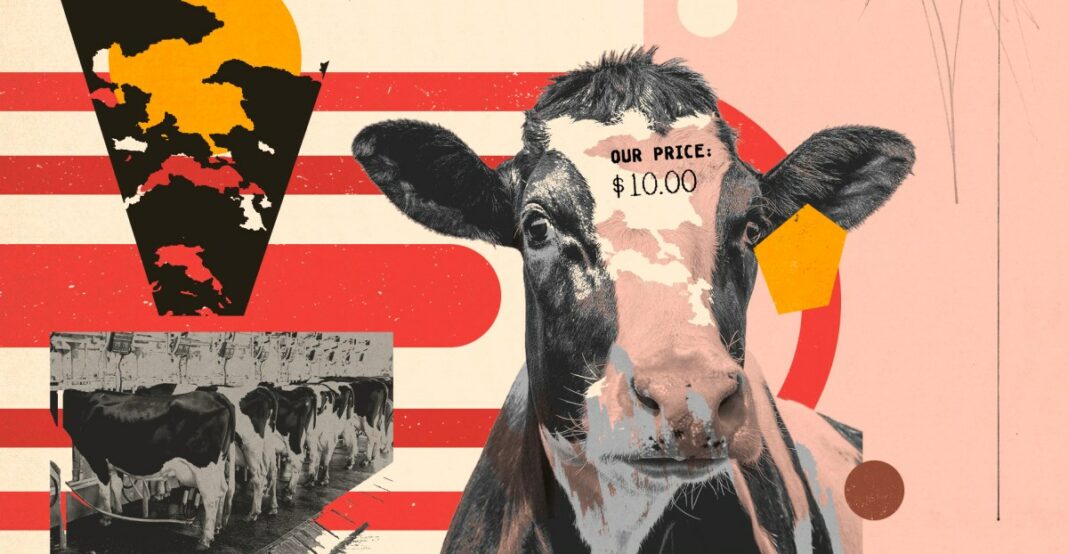How the Most Powerful Environmental Groups Help Greenwash Big Meat’s Climate Impact
Big Meat, comprised of major meat and livestock companies, has long been criticized for its significant contribution to climate change. The meat industry is responsible for a large portion of greenhouse gas emissions, deforestation, and water pollution. Despite these harmful effects on the environment, powerful environmental groups have been accused of greenwashing Big Meat’s impact on the climate.
1. The Influence of Big Meat on Environmental Groups
One of the main reasons why powerful environmental groups may be inclined to support Big Meat is the industry’s substantial financial contributions. Big Meat companies often donate large sums of money to these organizations, which can influence their stance on environmental issues. As a result, some environmental groups may downplay or overlook the negative environmental impact of the meat industry in order to maintain their funding.
1.1 Financial Incentives
Big Meat companies have a vested interest in promoting a positive image of their industry, as it helps to maintain consumer trust and support. By making significant financial contributions to environmental groups, these companies may be able to influence their messaging and downplay their impact on the environment.
1.1.1 Corporate Sponsorship
Many environmental organizations rely on corporate sponsorship to fund their operations. While this funding can be crucial for their work, it can also create conflicts of interest when it comes to addressing industries like Big Meat. Some environmental groups may be hesitant to criticize or hold these companies accountable for their environmental impact due to financial ties.
2. Greenwashing of Big Meat’s Climate Impact
Greenwashing is the practice of making an organization or industry appear more environmentally friendly than it actually is. In the case of Big Meat, this can involve efforts to showcase sustainability initiatives or minimize the negative impact of meat production on the climate. Powerful environmental groups may inadvertently contribute to this greenwashing by failing to hold Big Meat companies accountable for their actions.
2.1 Sustainability Campaigns
Many Big Meat companies promote sustainability campaigns that highlight their efforts to reduce their environmental footprint. While these initiatives may sound promising, they often fail to address the fundamental issues of greenhouse gas emissions and deforestation associated with meat production. Environmental groups that support these campaigns without critically evaluating their effectiveness may be complicit in greenwashing.
2.1.1 Lack of Transparency
One of the key tactics used in greenwashing is a lack of transparency about the true impact of an industry on the environment. Big Meat companies may withhold or manipulate data about their emissions and environmental practices in order to present a more positive image. Environmental groups that do not demand transparency and accountability from these companies may inadvertently contribute to their greenwashing efforts.
3. The Role of Consumers
Consumers play a crucial role in holding Big Meat companies accountable for their environmental impact. By educating themselves about the true cost of meat production on the climate and supporting sustainable alternatives, consumers can influence industry practices and pressure environmental groups to take a stronger stance on the issue.
3.1 Demand for Transparency
Consumers can pressure Big Meat companies to be more transparent about their environmental practices by demanding access to information about their emissions, deforestation rates, and water usage. By supporting companies that prioritize sustainability and ethical practices, consumers can shift the market towards more environmentally friendly options.
3.1.1 Supporting Sustainable Agriculture
One way that consumers can reduce the impact of Big Meat on the climate is by supporting sustainable agriculture practices. This includes choosing plant-based protein sources, buying locally sourced and organic products, and reducing overall meat consumption. By making informed choices about their diet and purchases, consumers can help drive positive change in the meat industry.
Conclusion
In conclusion, the influence of powerful environmental groups on Big Meat’s climate impact is complex and multifaceted. While financial incentives and corporate sponsorship may lead some organizations to greenwash the industry’s environmental practices, consumer awareness and activism can help hold companies accountable and push for greater transparency. By supporting sustainable alternatives and demanding accountability from Big Meat companies, we can work towards a more environmentally friendly future.
FAQs
Q: How can I support environmental organizations that are not influenced by Big Meat companies?
A: Research and support grassroots organizations that prioritize environmental advocacy and are transparent about their funding sources. Look for groups that prioritize sustainability and ethical practices in their messaging and actions.
Q: What are some ways I can reduce my carbon footprint related to meat consumption?
A: Reduce your meat consumption, choose plant-based protein sources, support sustainable agriculture practices, and buy locally sourced and organic products. By making conscious choices about your diet and purchases, you can help reduce the environmental impact of the meat industry.
Q: How can I educate others about the climate impact of Big Meat?
A: Share information about the environmental impact of the meat industry with friends and family, support initiatives that promote awareness and transparency around food production, and advocate for policies that regulate and reduce greenhouse gas emissions from the meat industry.




